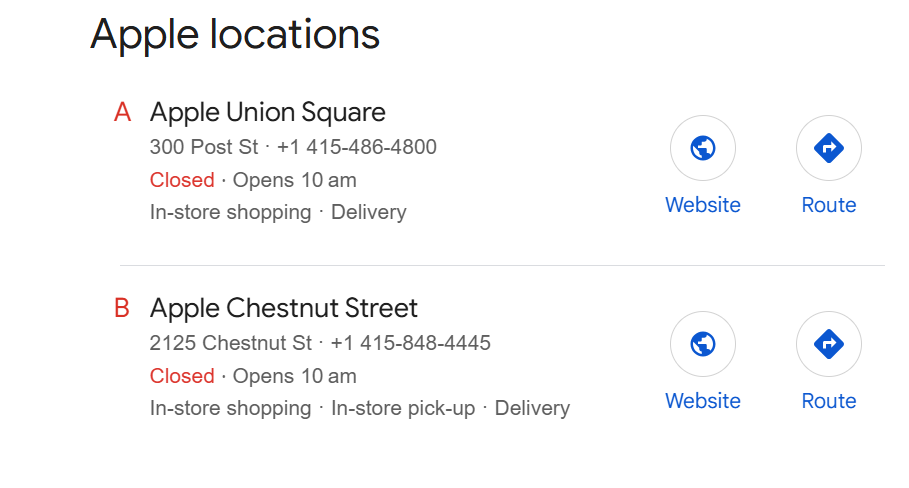
How Google’s Structured Data Impacts Your SEO Strategy in 2025
Structured data and SEO are more connected than ever in 2025. With AI-generated summaries, multimodal search, and constantly evolving ranking signals, one thing is clear: structured data is no longer optional. It has become a core part of how Google interprets your content, presents it to users, and highlights your brand in the moments that matter most. At Decisive Design, we’ve seen firsthand how structured data can dramatically improve a site’s visibility. In this guide, we’ll look at why structured data remains essential in 2025, what’s new this year, the most effective schema types to use, and how to implement and maintain it as part of a long-term SEO structured data strategy.
Why Structured Data Remains Crucial for SEO in 2025
Even as algorithms evolve, structured data and SEO remain inseparable because schema gives Google confidence in what your content is, who it’s for, and how to surface it.
From Rich Results to AI Search Previews

In the past, schema markup primarily helped websites earn rich snippets such as star ratings or recipe cards. In 2025, that’s just the starting point. Structured data now fuels AI Overviews: Google’s AI-generated summaries that appear at the very top of results. For example, if a user searches for “how to change a car tire,” Google may generate a preview that pulls directly from the FAQPage and the HowTo schema. Websites with detailed structured data are far more likely to be featured in these AI previews, which means schema markup is becoming the gateway to visibility in AI-driven search.
Google’s Continued Push for Helpful, Structured Information
Google’s Helpful Content System favors websites that explain topics clearly in ways both people and search engines can understand. Structured data plays a key role because it makes content machine-readable. For example, properly tagging a post with an Article schema tells Google what it’s about, who wrote it, and when it was published. In a search environment where rankings depend on both quality and clarity, structured data ensures Google interprets your site’s value correctly.
What’s New with Structured Data in 2025
The big story this year is both breadth and depth: more schema types, more properties, and more ways AI is using them. In 2025, your SEO structured data strategy should be designed to support AI Overviews, voice answers, and multimodal search experiences.
Evolving Schema Markup Types
Schema.org regularly expands its library, and recent releases include more detailed options for product variants, video indexing, and speakable schema for voice assistants. E-commerce businesses can now mark up color, size, and version variations more precisely, making it easier to appear in AI-powered shopping feeds. Video schema has also grown in importance, which is critical as short-form video continues to dominate online content. Staying on top of these structured data trends in 2025 is essential for staying competitive.
Voice Search and AI Integration
Voice search is becoming smarter and more accurate with the help of structured data. Millions of people depend on assistants like Siri, Alexa, and Google Assistant to get fast answers. Schema ensures your content is interpreted correctly, so when someone asks, “Where’s the nearest piano moving company?” or “What’s the best wig shop near me?”, your business has a real chance of being the spoken result. At the same time, AI search models trained on structured content use schema to deliver concise, reliable responses, strengthening the schema markup SEO future.
Mobile-First and Multimodal Search
Google is investing heavily in multimodal search, where users combine text, images, and voice to find results. Structured data makes your site more adaptable across these different search formats. For example, the LocalBusiness schema ensures that when someone uses Google Lens to search “cleaning company near me,” your contact information appears correctly. Pairing image schema with product markup can also help e-commerce stores appear in visual search results. Making schema work seamlessly across devices and formats is now a core part of optimizing for mobile-first indexing.
Best Structured Data Types to Focus On in 2025
With hundreds of schema types available, it’s easy to get overwhelmed. But not all are equally impactful. These are the structured data types that matter most this year for most websites.
Organization and LocalBusiness Schema

Every business should have the Organization schema or LocalBusiness schema properly implemented. These provide Google with your business name, address, phone number (NAP), and key details. The benefit is twofold: it strengthens your brand’s identity across search results and ensures your contact information appears consistently in local search listings. For local businesses, this schema is non-negotiable for visibility in maps and local packs.
Product and Service Schema
For e-commerce and service-based businesses, the Product and Service schema is essential. They allow Google to display product details such as pricing, availability, and customer reviews directly in search results. In 2025, product schema has evolved to highlight variant listings, meaning a single product page can showcase multiple styles or models. This creates richer listings and can directly boost click-through rates.
Article, FAQPage, and HowTo Schema
Content-focused sites benefit most from Article, FAQPage, and HowTo schema. These remain critical for securing featured snippets, AI Overviews, and placements in the “People Also Ask” section. For example, a blog post with an FAQ schema might not only earn visibility in traditional search but also be chosen as a cited source in AI-generated search summaries.
Event and Review Schema
If your business hosts events or relies heavily on customer feedback, the Event and Review schema are must-haves. Event schema makes your listings discoverable in Google’s event search features, while Review schema allows customer ratings to appear directly under your product or service results. In 2025, reviews remain one of the strongest trust signals for both search engines and potential customers.
How to Implement Structured Data for SEO Success
Great implementation matches strategy with maintainable workflows. Aim for accuracy, completeness, and ongoing monitoring, then let validation and reporting guide continuous improvement.
Recommended Tools and Platforms
Google’s Rich Results Test remains the gold standard for checking if your schema is valid. Beyond that, tools like Schema App, RankMath, and Yoast SEO make implementation easier for non-developers. Whenever possible, use JSON-LD, which Google recommends over Microdata for flexibility and simplicity. These platforms ensure your structured data is accurate, scalable, and future-proof.
Tips for Maintaining and Updating Structured Data
Structured data isn’t a “set it and forget it” solution. As Google and Schema.org evolve, you need to run regular audits to catch outdated or deprecated schema types. Google Search Console now includes enhanced reports for structured data, making it easier to track performance and spot issues. Staying proactive ensures your structured data and SEO strategy remain effective year after year.
Avoiding Common Structured Data Mistakes
Many websites undermine their SEO by using structured data incorrectly. Overusing irrelevant schema can confuse search engines instead of clarifying context. Mislabeling content, for example, tagging an opinion blog post as a “HowTo” guide, can reduce trust and visibility. A frequent oversight is failing to update the schema when content changes, such as leaving an expired event marked as “upcoming.” Avoiding these mistakes is just as important as implementing schema in the first place, since errors can prevent Google from displaying rich results altogether.
How Structured Data Fits Into Your Long-Term SEO Strategy
Structured data isn’t just a short-term SEO boost; it’s a long-term investment. As Google continues to roll out AI-driven features, voice assistants, and personalized search experiences, structured data will serve as the foundation for how your website interacts with these technologies. A strong SEO structured data strategy ensures that your content remains visible, relevant, and competitive no matter how search evolves.
At Decisive Design, we help businesses implement structured data not only for today’s search environment but also with the future in mind. From technical setup to ongoing audits, our team ensures your website stays aligned with Google’s latest updates. In 2025 and beyond, structured data and SEO are inseparable, making schema markup a must-have for any serious digital strategy.
Frequently Asked Questions (FAQs)
How is structured data affecting SEO in 2025?
Structured data is now central to how Google delivers AI Overviews, voice results, and rich snippets. Sites with proper schema markup are more likely to appear in these advanced features, boosting visibility and click-through rates.
What’s new with structured data and SEO this year?
2025 has introduced updates like product variant schema, expanded video schema, and broader use of speakable schema. These updates help content appear in more AI-driven and multimodal search results.
Should all websites use structured data for SEO?
Yes, structured data benefits nearly every type of website, from local businesses to e-commerce stores. It improves how Google interprets and showcases your content in search.
What are the top structured data types for 2025?
The most impactful include Organization, LocalBusiness, Product, FAQPage, HowTo, and Article schema. Event and Review schema are also valuable for brands hosting events or collecting customer feedback.
How do I check if my structured data is working?
Use Google’s Rich Results Test or Search Console to validate your schema. These tools show errors, performance insights, and whether your site is eligible for enhanced search features.